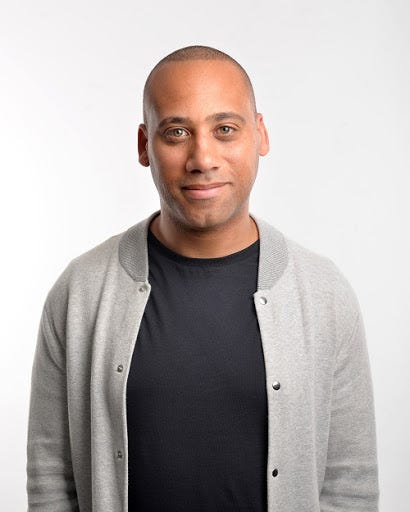Leroy Brito: “My identity has never been a struggle for me”
The comedian on why there’s so much more to people than just their skin
Hi, welcome back to Mixed Messages! This week I’m speaking to comedian Leroy Brito, who is of mixed-Black heritage. I first came across Leroy while watching Liana Stewart’s Black and Welsh, a documentary available on BBC iPlayer about what it means to be – you’ve guessed it – Black and Welsh. The mixed conversation can often focus on a London experience, but what about those from around the UK? How does their identity play out? Leroy gave me a good idea in this week’s conversation.
How do you define your ethnicity?
I see myself as mixed-race. It’s a bit more contextual than just ‘half-Black, half-white’: my grandfather on my father’s side as mixed-race, where there was white and Cape Verdean, and my grandmother on my mother’s side is mixed-race, where there was also St Lucian, Jamaican and white heritage.
Did where you grew up affect your sense of identity?
I’m from a place in Cardiff called Tiger Bay, which is just a beautiful, multicultural melting pot of people. It almost feels like we’ve dealt with any race conflicts already.
I grew up in an area where we knew exactly where our grandparents were from, and we had the first Black headteacher in Wales. We always had education about Black history, so once we got into the wider world we didn’t have to try to find our identity because we knew who we were.
Did you see much representation in Wales?
Wales has a rich tradition of great sporting people who couldn’t get recognition in Wales so had to find it elsewhere. One example is Billy Boston, one of the greatest ever Rugby League players. He had to move from Cardiff to Wigan in the ‘50s because he was Black and would never be picked to play for Cardiff. The Welsh Rugby Union wasn’t favourable for Black players at the time.
Does it feel like there’s only space for one Black British person in comedy?
Yes, especially in London. I’m rarely on the bill with other Black comedians, it’s like everyone gets their turn to be the Black British or female comedian. I wouldn’t say it’s a tick box exercise, but once they’ve got someone, they feel like they have that representation.
There’s an urban scene in UK comedy too, but I haven’t explored that because my experience is not the Black London experience. I feel inauthentic going into that scene. I don’t talk about different cultures, or being first or second generation either, because I don’t have that experience of my mother coming from a different country.
When I was looking for an agent, people would tell me that they already represented someone similar, but I’m thinking, ‘you don’t know anybody like me from Wales.’ Then I look on their website and they’ve got a Black Londoner.
Do you bring elements of your racial identity into your comedy?
I do quite explicitly address those issues, but it’s from my perspective and my truth. That’s what makes me unique in that respect.
Do you look up to any mixed comedians?
There are loads of Black comedians, or people who I wouldn’t even know were mixed-race because I just see them as themselves, like Ignacio Lopez who’s a friend of mine. Dane Baptiste is one of my favourites on the scene, and I like Thanyia Moore too.
Do you ever get bored about talking about identity?
I don’t think so. It’s part of my story. It runs through me, and I get to control what I say about it.
What’s the best thing about being mixed-race for you?
An appreciation and empathy of others. You learn pretty quickly that you don’t judge someone on preconceived ideas of what they should be, you understand that it’s more nuanced than that. There’s so much more than just the skin.
If you could sum up your mixed experience in one word, what would that be?
Positive. It hasn’t been a struggle for me, I haven’t looked at media or literature for role models of how to act, dress or walk. I think I’m living in a utopia. I do come up against external friction, but it’s not something I’ve had to deal with internally.
Watch Black and Welsh on BBC iPlayer. Next week, I’ll be talking to blogger and mental health advocate, Isabella Johnson. Subscribe to get Mixed Messages in your inbox on Monday!
Enjoy Mixed Messages? Consider supporting me on Ko-Fi so I can continue to grow this newsletter! My new goal is to pay a mixed-race writer to create a special first anniversary edition of Mixed Messages.
Mixed Messages is a weekly exploration of the mixed-race experience, from me, Isabella Silvers. My mom is Punjabi Indian (by way of East Africa) and my dad is White British, but finding my place between these two cultures hasn’t always been easy. That’s why I started Mixed Messages, where each week I’ll speak to a prominent mixed voice to delve into what it really feels like to be mixed.







